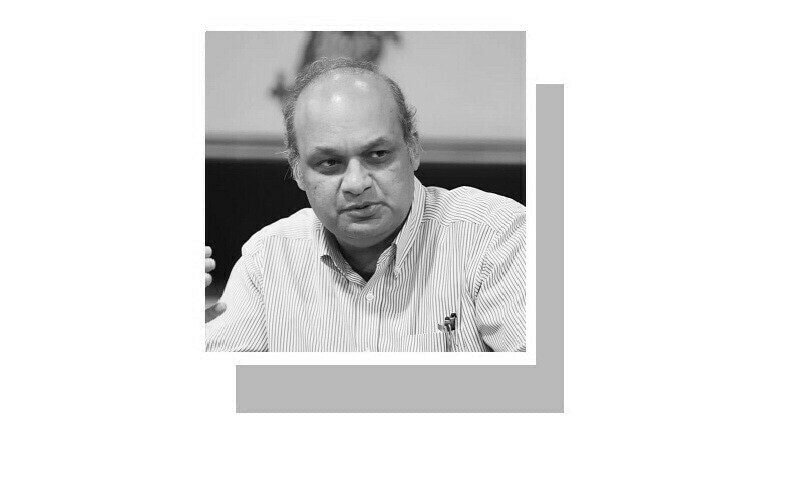I arrived at a Khidmat Centre around 2 p.m. on the day that I did not have to teach in the afternoon. About 45 men waited in a long line to submit their applications. Everyone had to wait in the sun because it was hot. I stood there for a while before coming back. The line outside had barely moved in the two hours I had been there. I came to the realization that I would not be able to submit my application prior to the deadline.
The following day, I arrived at the Khidmat Centre approximately 30 minutes before morning opening. Thirty more people were still waiting in line before me. I had to leave after waiting for about three hours because I had a class to teach. Only seven to eight men’s documents appeared to have been processed during those three hours. I’m not sure how many of the women made it.
The men had to wait in the sun, without any shade, on both days. They couldn’t drink because there was no nearby water cooler installed at the height of summer. People should receive assistance from the Khidmat Centre. Why is it so difficult for individuals to access khidmat?
At the very least, we can work toward making getting attestations easier.
I eventually received the report, and the police officer to whom I wrote was very kind. Not only did he install a shade and a water cooler in the center, but he also doubled the number of desks where the police checked applications to cut down on processing time. However, there are hundreds of such services available to citizens worldwide, whereas this is a single center and service.
A friend of mine informed me that he was required to submit some documents in a Gulf nation, and that he was asked to have them verified by the country’s embassy in Pakistan, the Ministry of Foreign Affairs, and finally the Pakistani embassy in that nation. This means spending a lot of time and effort in offices that aren’t really made for working with people and making their lives easier. However, it was necessary, and time and effort were spent on it.
Take a look at Pakistan’s problem with degree verification. After many years of hard work, my university awards me a degree. My degree must be “verified” by the Higher Education Commission (HEC) and the Ministry of Foreign Affairs for international applications and public sector applications. The majority of these procedures are neither quick nor online.
It is evident that we have reached the point where the majority of Pakistanis, particularly those outside the country, do not have faith in the documents we submit. Before they accept the documents and us as trustworthy, they believe they require multiple layers of verifications and attestations. We have not arrived at this point in a day, and neither will we depart from it in a day. However, we can at the very least make an effort to speed up the process of acquiring attestations and verifications. Unfortunately, neither of us is doing that.
In this day and age, why does HEC need to verify degrees? All Pakistani universities are now sufficiently online. Why don’t they give or send the verified and attested degrees to the students and send the list of students and their degrees to HEC when they graduate? They can charge the students for the service if necessary.
In the future, this will eliminate the need for verification. Students will also save time by not having to go to HEC to get their verifications done. The HEC and the universities can work out the specifics to ensure the smoothest possible process because it would be a transaction between universities and the HEC.
After the system is set up, this could be done for years. Graduates’ records are kept by the universities. Additionally, when HEC inquires about a particular candidate, this is how degrees are verified. Digital records must be kept of the past few years. HEC could attest or verify the names and degrees of recent graduates by sending them to the universities in batches or in any other manner permitted by the system. Although the majority of degree holders’ lives could be significantly simplified, the process may be longer for those who received their degrees in the past when their records were not digitized. The lines outside the HEC offices would quickly dissipate.
Balances and checks will continue. We will have multiple checks on all processes in a society where fraud, incompetence, and corruption are common and trust is low. We ought to work on increasing trust, but that is a problem for the medium to long term.
The checks should be made as efficient as possible by someone. When you enter certain roads and cross certain bridges, tolls will be charged, but it’s important to figure out how many booths should be there and how many should work during rush hour. It may spare citizens effort and time.
In order to stay competitive and attract and retain customers, businesses are under pressure to engineer processes. This pressure does not exist for governments, and given Pakistan’s state structure, citizen pressure is also not very effective. It is costly, counterproductive, and reinforces the impression that the state and its organs simply do not care if better solutions are not designed and implemented.
The author is an associate professor of economics at Lums and a senior research fellow at the Institute of Development and Economic Alternatives.



